Paw-fect Companions: Best Dogs for Seniors in Australia
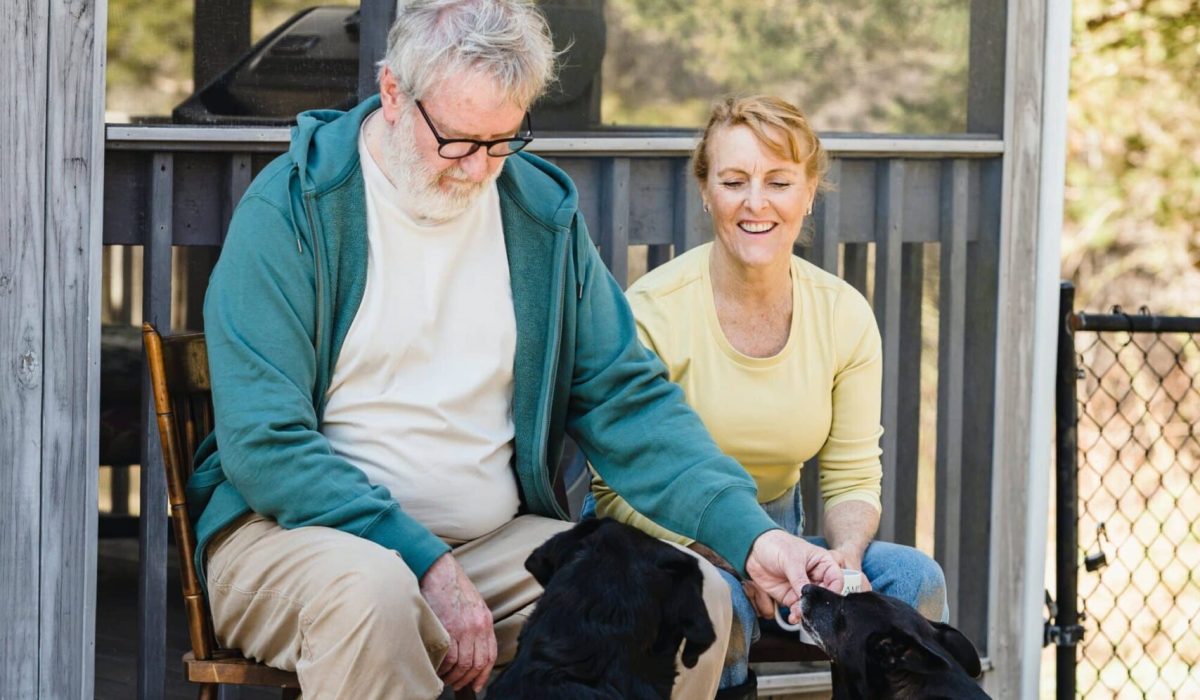
As we step into the golden years of retirement, the search for a loyal companion becomes more significant than ever. Sharing life with a canine friend not only brings joy but also offers health benefits such as promoting an active lifestyle and decreasing stress. For seniors in Australia, finding the right breed that suits a more relaxed pace of life and meets the needs of older adults is crucial.
In this article, ‘Paw-fect Companions: Best Dogs for Seniors in Australia’, we’ll explore the top dog breeds that are especially well-suited for seniors. Whether you’re looking for a low-maintenance mate who’s content with gentle walks or a social butterfly to keep you connected with your community, we’ve rounded up a tail-wagging list catered to your unique lifestyle. Get ready to meet your perfect four-legged match that will enrich your retirement days with love, laughter, and companionship.
CONTENT
Choosing the Right Breed for Your Lifestyle
As you approach retirement, choosing the right canine companion that suits your lifestyle becomes a significant decision. The first step in finding the perfect breed is to consider your living situation, activity level, and daily routine. Whether you reside in a spacious home or a cozy apartment, there’s a dog breed that perfectly aligns with your living environment. Additionally, if you enjoy leisurely strolls around the neighborhood, a smaller breed with lower exercise needs might be ideal, while a more active individual might thrive with a larger, more energetic dog.
When selecting a breed that complements your lifestyle, it’s crucial to consider the dog’s temperament and energy level. For retirees who prefer a quieter, more relaxed routine, a calm and gentle breed could provide the ideal companionship. On the other hand, if you’re an active retiree who enjoys outdoor adventures, a sociable and energetic dog could be the perfect match. By thoughtfully assessing your preferences and daily activities, you can find a canine companion that seamlessly integrates into your retirement lifestyle, providing love, joy, and meaningful companionship.
To ensure a harmonious bond, it’s essential to consider the grooming and maintenance needs of the breed you’re interested in. Some dogs require regular grooming, while others have minimal shedding and grooming requirements. By understanding the grooming demands of different breeds, you can select a furry friend whose care needs align with your preferences and abilities, creating a mutually rewarding relationship.
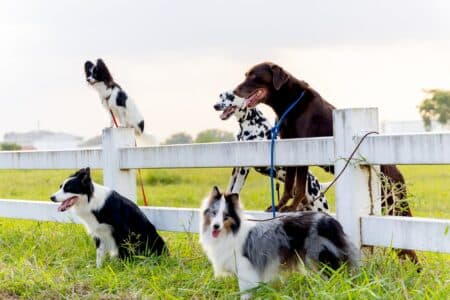
Benefits of Dog Ownership in Retirement
Dog ownership in retirement brings a wealth of benefits, contributing to a fulfilling and healthy lifestyle. Canine companionship provides emotional support, reduces loneliness, and encourages social interaction, which is particularly beneficial for retirees. The unconditional love and loyalty that dogs offer create a sense of purpose and connection, combating feelings of isolation and providing a constant source of companionship. Additionally, walking and playing with a dog can lead to increased physical activity, promoting fitness and overall well-being during the retirement years.
The presence of a dog in retirement can positively impact mental and emotional health. The companionship and routine that come with caring for a dog can reduce stress and anxiety, providing a sense of structure and purpose in daily life. Furthermore, the bond formed with a furry friend can enhance feelings of joy and contentment, leading to improved mental well-being and a more positive outlook on life. As retirees navigate this new phase of life, the love and affection of a dog can bring immeasurable joy and comfort, promoting a fulfilling retirement experience.
Moreover, owning a dog in retirement offers the opportunity for increased social interaction and community engagement. Walking a dog can lead to chance encounters and conversations with neighbors and fellow dog owners, fostering new friendships and strengthening community connections. These social interactions can provide a sense of belonging and create a supportive network, enriching the retiree’s social life and enhancing their overall well-being.
Size Matters: Finding the Ideal Dog Size for Seniors
When considering the ideal dog size for seniors, it’s important to take into account both practicality and personal preference. Small-sized dogs, such as toy or small breeds, can be a great fit for seniors living in smaller spaces, such as apartments or retirement communities. Their compact size makes them easier to manage and care for, and they often require less exercise than larger breeds. This can be an excellent match for seniors who prefer a low-maintenance companion that doesn’t demand extensive physical activity.
On the other hand, medium-sized and larger dogs can bring their own set of advantages. Some seniors may prefer the sturdier and more robust nature of medium to large-sized dogs, as they can provide a greater sense of security and protection. Additionally, certain breeds in this size range are known for their gentle and calm nature, making them suitable companions for older adults who are looking for a loyal and affectionate canine friend. However, it’s important to consider the space available for the dog and the owner’s physical capabilities when selecting a medium to large-sized breed.
It’s essential to find a dog size that matches the physical abilities and preferences of the senior owner. Small dogs are generally easier to handle, making them a better choice for seniors with limited mobility or strength. On the other hand, medium to large-sized dogs may require more physical effort to handle, particularly when it comes to grooming, exercise, and general care. By carefully considering the size and needs of different breeds, seniors can find a dog size that not only fits their living environment but also aligns with their capabilities and lifestyle preferences.
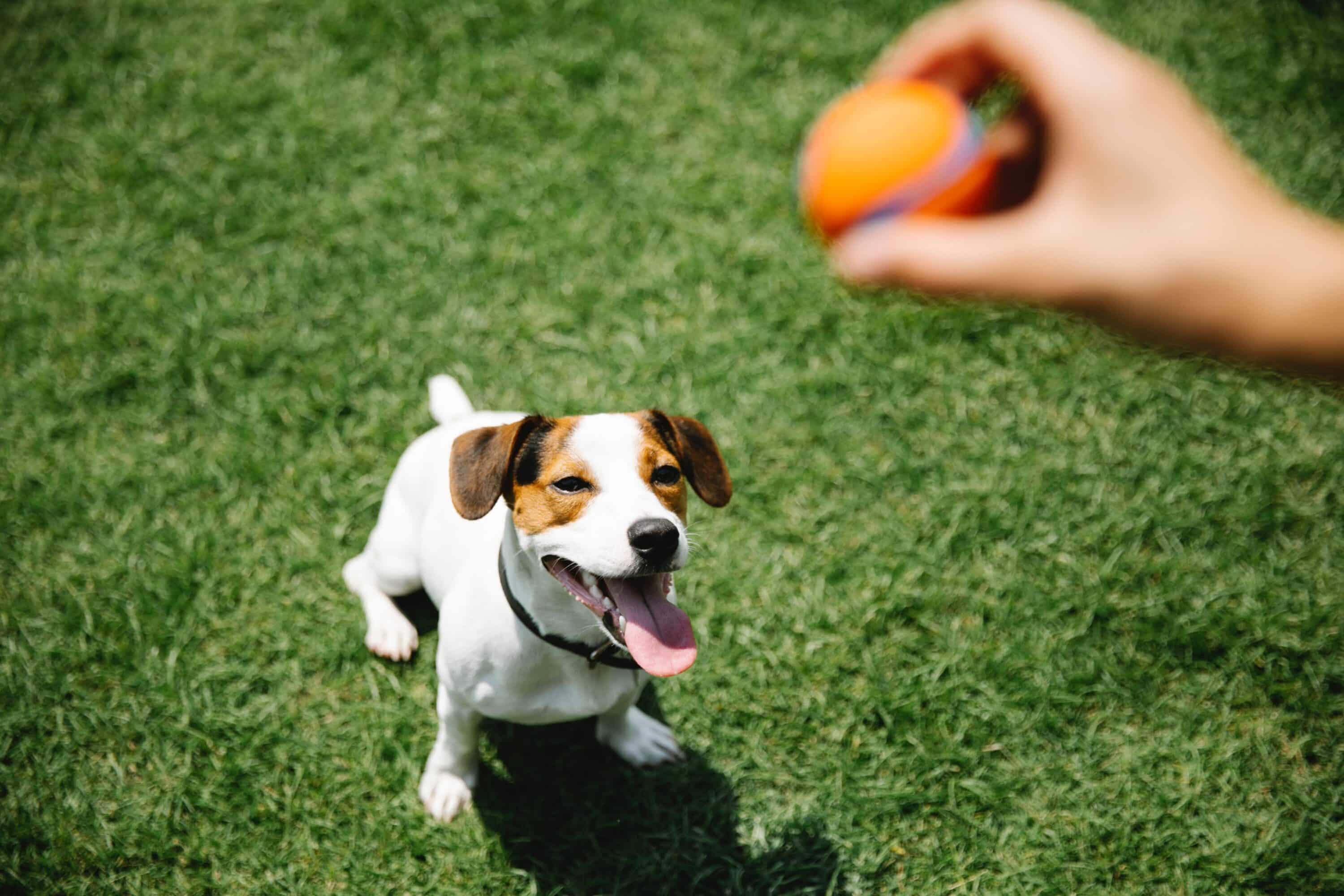
Activity Levels: Matching a Dog’s Energy with Yours
Matching a dog’s energy level with that of the senior owner is a key consideration when choosing a canine companion. For seniors who lead a calm and relaxed lifestyle, selecting a breed with lower energy requirements is essential. A dog that is content with moderate walks and gentle playtime can provide the perfect amount of companionship without overwhelming the owner. Conversely, for seniors who are more active and enjoy outdoor activities, a dog with higher energy levels and a keen interest in exercise can be a great match. By aligning the dog’s activity needs with the senior owner’s preferences, a harmonious bond can be established, ensuring that both the dog and the owner are fulfilled.
Additionally, taking into account the exercise needs of the chosen breed is crucial. Some dogs require daily walks and playtime to maintain their health and well-being, while others may have lower exercise requirements. Seniors should consider their own physical capabilities and routine when selecting a dog with specific activity levels. By choosing a breed that matches the senior’s energy capacity, the owner can ensure that the dog’s exercise needs can be consistently met, promoting a healthy and active lifestyle for both.
Understanding the activity levels of different dog breeds is vital for seniors to make an informed decision. Some breeds are known for their relaxed and easygoing nature, making them suitable for seniors who prefer a more leisurely pace. On the other hand, some breeds thrive on regular physical activity and mental stimulation, making them a great fit for seniors who enjoy an active lifestyle. By carefully assessing the activity needs of potential canine companions, seniors can find a furry friend whose energy levels complement their own, allowing for a balanced and mutually satisfying relationship.
Grooming and Maintenance Considerations
When choosing a dog as a companion in retirement, grooming and maintenance considerations play a significant role in ensuring a seamless and enjoyable experience. Understanding the grooming requirements of different breeds is essential, as it directly affects the amount of time and effort required to maintain a dog’s coat and overall appearance. Some breeds have minimal shedding and grooming needs, making them a suitable choice for seniors who prefer low-maintenance companions. On the other hand, some breeds require regular grooming, including brushing, bathing, and coat trimming, and seniors should assess their ability and willingness to fulfill these needs when selecting a breed.
Moreover, considering the seasonal variations in grooming requirements is important. Some breeds may require more intensive grooming during shedding seasons, while others may have consistent grooming needs throughout the year. Seniors should take into account their personal preferences and capabilities when selecting a breed based on seasonal grooming demands. Additionally, understanding the specific grooming tools and products required for different breeds can aid seniors in making informed decisions and preparing for the care needs of their furry companions.
Regular maintenance, such as nail trimming, dental care, and ear cleaning, is essential for the overall well-being of the dog. Seniors should consider their capacity to carry out these maintenance tasks or the availability of professional grooming services in their area. By being mindful of the grooming and maintenance demands of different breeds, seniors can select a dog that aligns with their grooming capabilities and preferences, ensuring a mutually rewarding and stress-free companionship.

Health Advantages of Canine Companions
The presence of a canine companion in a senior’s life can have a positive impact on their overall health and well-being. Studies have shown that owning a dog can lead to a range of health benefits for older adults, including reduced blood pressure, lower stress levels, and a decreased risk of heart disease. The regular exercise that comes with walking and playing with a dog can contribute to improved cardiovascular health and physical fitness, offering a gentle and enjoyable way for seniors to stay active and maintain mobility.
Furthermore, the emotional and mental support provided by canine companions can have a significant effect on a senior’s mental and emotional well-being. The companionship, love, and routine that come with caring for a dog can reduce feelings of loneliness and isolation, promoting a positive outlook and enhancing overall mood. The unconditional love and constant companionship of a dog can provide comfort and a sense of purpose, reducing stress and anxiety and contributing to a better quality of life for seniors in retirement.
Owning a dog can also encourage a more active and social lifestyle for seniors. Taking a dog for walks and outings can lead to increased social interaction with other dog owners and members of the community, fostering new connections and friendships. This social engagement can provide a sense of belonging and connection, combating feelings of isolation and contributing to a more vibrant and fulfilling retirement experience for seniors.
Calm and Gentle Breeds for a Peaceful Companion
For seniors seeking a peaceful and gentle companion, selecting a breed known for its calm and easygoing nature is essential. Certain dog breeds are renowned for their gentle temperament, making them ideal companions for older adults who prefer a quieter and more relaxed lifestyle. These breeds often exhibit traits such as patience, loyalty, and a gentle disposition, providing a soothing and comforting presence for their senior owners. Their tranquil nature can create a peaceful and harmonious living environment, offering companionship without overwhelming the owner.
Choosing a calm and gentle breed can also be beneficial for seniors who have specific health considerations. Some seniors may prefer a dog that is low-energy and requires minimal physical activity, making a calm and gentle breed the perfect choice. These breeds provide the companionship and emotional support that seniors seek, without requiring extensive exercise or vigorous playtime, making them a suitable option for individuals with mobility limitations or health concerns. Additionally, the serene and composed nature of these breeds can have a calming effect, promoting relaxation and reducing stress for their senior owners.
Furthermore, calm and gentle breeds are well suited for seniors who desire a loyal and affectionate companion. These breeds often form strong bonds with their owners and are known for their patience and attentiveness, making them intuitive and responsive companions. Their gentle nature can offer a source of comfort and solace, providing unwavering support and unwavering companionship for seniors in need of a steady and understanding presence.

Friendly and Sociable Dogs for Active Retirees
For active retirees seeking a friendly and sociable canine companion, selecting a breed known for its outgoing and amiable nature is key. These breeds are characterized by their friendliness, social nature, and affinity for interacting with people and other animals. For seniors who lead an active lifestyle and enjoy engaging with their community, a friendly and sociable dog can serve as an excellent companion, providing joyful interactions and enhancing social experiences. The affability of these breeds can be particularly appealing for seniors who value companionship, connection, and the opportunity for shared activities.
Moreover, friendly and sociable breeds can amplify the sense of engagement and connection when participating in outdoor activities and community events. Whether it’s visiting local parks, engaging in group walks, or participating in pet-friendly gatherings, these breeds thrive on social interaction and can help active retirees remain connected and engaged with their surroundings. Their outgoing nature and innate desire to be around people can promote a lively and dynamic lifestyle, enriching the retirement experience for seniors who value social bonds and shared experiences.
In addition to their friendly disposition, sociable dogs can be wonderful companions for seniors who wish to maintain an active and lively household. Their enthusiasm for play, exercise, and exploration can align with the energy levels and interests of active retirees, creating a harmonious and vibrant living environment. By providing companionship and an eagerness to participate in various activities, friendly and sociable breeds can bring joy, laughter, and a sense of fulfillment to the lives of their senior owners.
Low Allergy Dogs for Sensitive Owners
For seniors with sensitivity to pet allergens, selecting a low-allergy dog breed can be a thoughtful and considerate choice. Certain dog breeds are known for producing fewer allergens, such as dander and saliva proteins, making them a suitable option for individuals with allergic sensitivities. These low-allergy breeds can provide companionship without exacerbating allergies, enabling sensitive owners to enjoy the presence of a furry friend without experiencing significant allergic reactions. By carefully choosing a low-allergy breed, seniors can ensure a more comfortable and harmonious living environment while benefiting from the companionship and emotional support that a dog provides.
In addition to producing fewer allergens, low-allergy dogs often have coat types that shed less, reducing the presence of pet dander in the home. This shedding pattern can benefit sensitive owners by minimizing exposure to allergens that commonly trigger allergic reactions. Seniors in need of a low-allergy companion can explore various breeds that are recognized for their low shedding and minimal allergen production, providing an opportunity to experience the joy of pet ownership without compromising their well-being.
Furthermore, the presence of a low-allergy dog can contribute to a healthier and happier environment for sensitive seniors. The companionship, comfort, and emotional support provided by a low-allergy breed can positively impact the overall well-being of sensitive owners, promoting a more relaxed and enjoyable living experience. By introducing a low-allergy dog into the home, seniors can benefit from the emotional and social advantages of pet ownership while mitigating the challenges associated with pet-related allergies, creating a supportive and harmonious bond with their furry companion.
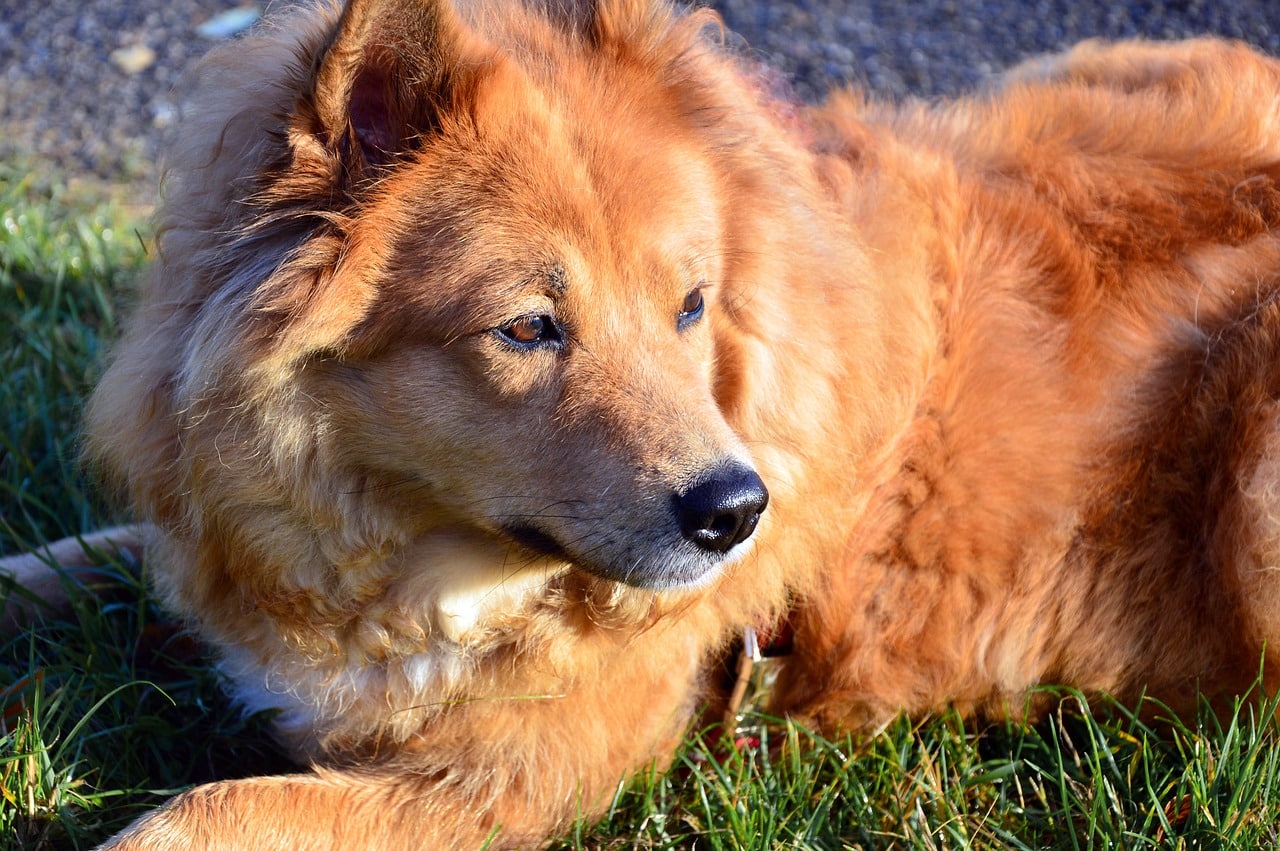
Adopting a Senior Dog: Giving Older Dogs a Second Chance
Adopting a senior dog can be a deeply rewarding experience for retirees, offering the chance to provide a loving home to a mature canine companion in need. Senior dogs often find themselves in shelters or rescue organizations due to various circumstances, such as changes in their owner’s circumstances, health issues, or simply being overlooked in favor of younger dogs. For retirees seeking a loyal and grateful companion, adopting a senior dog presents an opportunity to make a significant difference in the life of an older canine, providing love, care, and companionship during their golden years.
Senior dogs are known for their gentle and calm nature, making them a wonderful match for retirees who desire a peaceful and serene living environment. These dogs typically have well-developed temperaments, making them adaptable and appreciative of the comfort and stability provided by a loving home. By opening their hearts and homes to senior dogs, retirees can offer a second chance to a canine companion, providing a nurturing and supportive environment for a dog in their twilight years while benefitting from the gratitude and affection that senior dogs readily give.
Moreover, adopting a senior dog can be a deeply fulfilling experience, offering the chance to form a meaningful and loyal bond with a canine companion. Senior dogs are known for their unwavering loyalty, gratitude, and devotion to their new owners, creating a special and enduring connection that enriches the retirement experience. Providing a loving home to a senior dog allows retirees to experience the joy of giving and receiving unconditional love, offering a mutually rewarding companionship that brings immeasurable comfort, joy, and fulfilment to both the dog and the owner.
Training and Caring for Your New Furry Friend
Training and caring for a new furry friend is a vital part of welcoming a dog into a retiree’s home and ensuring a harmonious companionship. Whether adopting a puppy or a senior dog, providing proper training and care fosters a positive and loving environment for both the owner and the dog. Beginning with basic obedience training, such as commands for sitting, staying, and walking on a leash, establishes clear communication and establishes a foundation for a healthy relationship. For retirees, training can be both a bonding experience and an opportunity to encourage mental stimulation and physical activity for the dog, contributing to a fulfilling and enriching daily routine.
In addition to training, understanding and meeting the care needs of the new furry companion is essential for their health and well-being. This includes providing a nutritious diet, regular exercise, grooming, and veterinary care. Creating a consistent care routine ensures that the dog feels secure and cared for, fostering a nurturing environment that promotes trust and comfort for the dog. For seniors, providing care for a dog also offers an opportunity for daily physical activity, such as walking and playing, which can contribute to improved fitness and overall well-being.
Moreover, creating a supportive and loving environment through training and care enables the dog to flourish and thrive in their new home. Patience, positive reinforcement, and consistency play pivotal roles in the training and care process, allowing the dog to acclimate to their new surroundings and develop a sense of security and trust. By demonstrating love and care, retirees can build a strong and loyal bond with their furry friend, fostering a companionship that brings joy, comfort, and enrichment to their retirement years.
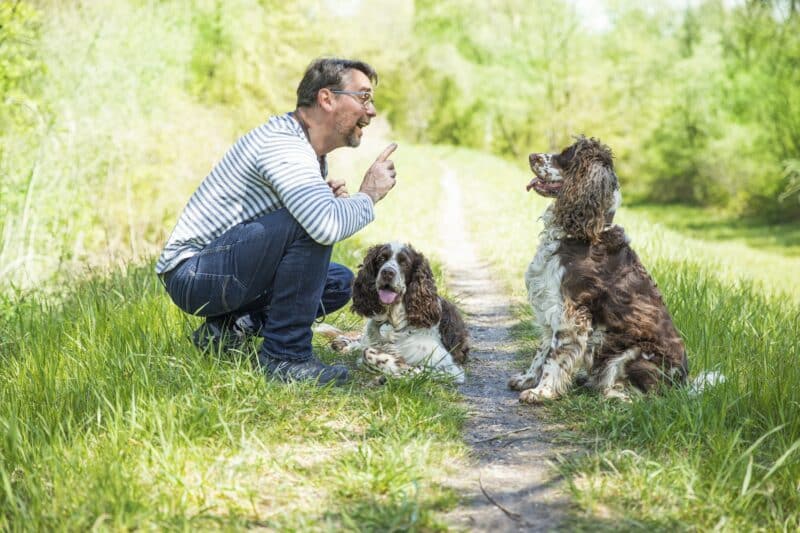
Local Resources and Support for Senior Dog Owners
For senior dog owners, accessing local resources and support can greatly enhance the experience of caring for a beloved furry companion. Many communities offer a range of services tailored to the needs of senior dog owners, including veterinary care, grooming facilities, dog walking services, and pet sitting. These resources can provide valuable assistance to seniors who may require additional support in caring for their dogs, ensuring that their furry friends receive the care and attention they need while offering peace of mind to the owners.
Local community centers, pet organizations, and senior support groups often offer programs and events specifically designed for senior dog owners. These initiatives can include educational workshops, social gatherings, and recreational activities that cater to the unique needs and interests of older adults and their canine companions. By participating in these programs, seniors have the opportunity to connect with other dog owners, share experiences, and gain insights into caring for their dogs in their retirement years.
Additionally, local animal shelters and rescue organizations can serve as valuable partners for senior dog owners, providing adoption opportunities, fostering programs, and pet care advice. These organizations may also offer volunteer opportunities, allowing seniors to engage in meaningful activities that support animal welfare and contribute to the well-being of dogs in need. By leveraging the resources and support available in their local community, senior dog owners can enhance their experience of caring for their furry companions, creating a nurturing and fulfilling environment for both themselves and their dogs.
Conclusion
Welcoming a canine companion into retirement offers a wealth of benefits, from providing unconditional love and companionship to promoting physical activity and emotional well-being. By carefully considering the breed, activity levels, grooming needs, and health advantages, seniors can find the perfect furry friend to enrich their retirement years. Whether choosing a calm and gentle breed, an active and sociable companion, or opting to give a senior dog a second chance, the bond between a senior and their canine friend can bring immeasurable joy and fulfillment. With local resources and support available, seniors can nurture a loving and supportive environment for their furry companions, creating a harmonious and rewarding retirement experience for themselves and their dogs. The journey of welcoming a dog into retirement is a heartwarming and meaningful adventure, filled with love, loyalty, and cherished moments that enhance the golden years.






